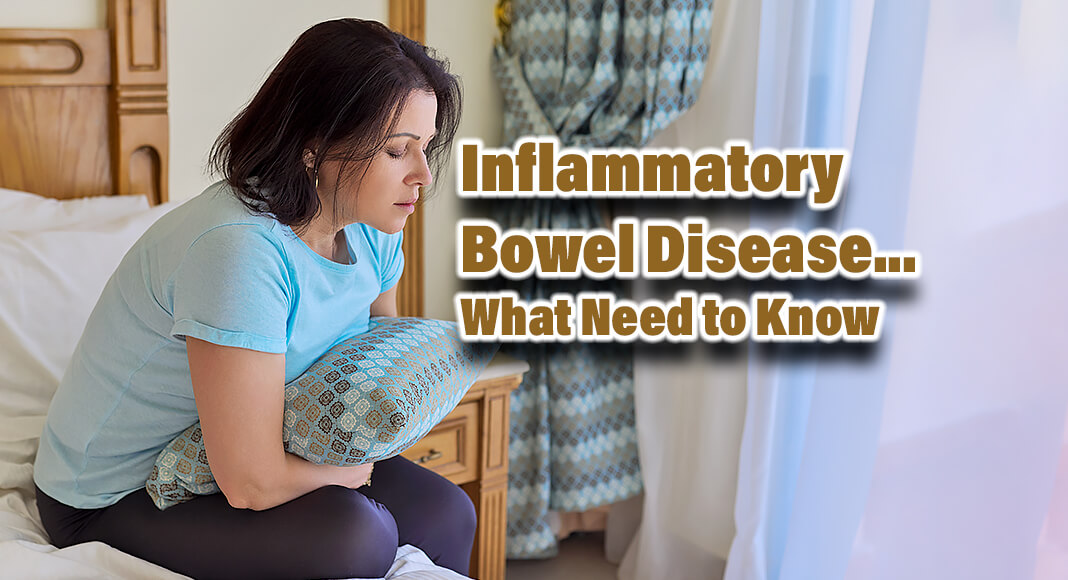
Mega Doctor News
By Laurel Kelly – The Mayo Clinic News Network
Researchers estimate that more than half a million people in the U.S. have Crohn’s disease, and 600,000 to 900,000 people in the U.S. have ulcerative colitis, according to the National Institute of Diabetes and Digestive and Kidney Diseases.
Inflammatory bowel disease is an umbrella term used to describe disorders that involve chronic inflammation of your digestive tract. For some people, inflammatory bowel disease is only a mild illness. For others, it can be debilitating and sometimes leads to life-threatening complications. Crohn’s disease and ulcerative colitis are two types of inflammatory bowel disease.
Crohn’s disease is characterized by inflammation of the lining of your digestive tract, which often spreads deep into affected tissues. Inflammation caused by Crohn’s disease can involve different areas of the digestive tract in different people, most commonly the small intestine.
Ulcerative colitis causes inflammation and sores in your digestive tract. Ulcerative colitis affects the innermost lining of your large intestine, also called the colon, and rectum.
Risk factors
- Age.
Most people who develop inflammatory bowel disease are diagnosed before they’re 30. But some people don’t develop the disease until their 50s or 60s. - Race or ethnicity.
Although inflammatory bowel disease is more common in white people, it can occur in any race. Cases are increasing in other races and ethnicities. - Family history.
You’re at higher risk if you have a close relative — such as a parent, sibling or child — with the disease. - Cigarette smoking.
Cigarette smoking is the most important controllable risk factor for developing Crohn’s disease. Smoking may help prevent ulcerative colitis. However, its harm to overall health outweighs any benefit, and quitting smoking can improve the general health of your digestive tract and provide many other health benefits. - Nonsteroidal anti-inflammatory medications.
Nonsteroidal anti-inflammatory medications may increase the risk of developing Crohn’s disease or worsen the disease in people who already have it. These medications include ibuprofen (Advil, Motrin IB, others), naproxen sodium (Aleve), diclofenac sodium and others.
Symptoms
Inflammatory bowel disease symptoms vary depending on the severity of inflammation and where it occurs. Symptoms may range from mild to severe. You are likely to have periods of active illness followed by periods of remission.
Signs and symptoms that are common to both Crohn’s disease and ulcerative colitis include:
- Diarrhea
- Fatigue
- Abdominal pain and cramping
- Blood in your stool
- Reduced appetite
- Unintended weight loss
The symptoms of Crohn’s disease and ulcerative colitis don’t only affect you physically, though. They take an emotional toll as well. If signs and symptoms are severe, your life may revolve around a constant need to run to the toilet. Even if your symptoms are mild, it can be difficult to be out in public. All of these factors can alter your life and may lead to depression.
Here are some strategies for coping and support:
- Be informed.
One of the best ways to be more in control is to learn as much as possible about inflammatory bowel disease. Look for information from reputable sources like the Crohn’s and Colitis Foundation. - Join a support group.
Although support groups aren’t for everyone, they can provide valuable information about your condition as well as emotional support. Group members frequently know about the latest medical treatments or integrative therapies. You may also find it reassuring to be among others with inflammatory bowel disease. - Talk to a therapist.
Some people find it helpful to consult a mental health professional who’s familiar with inflammatory bowel disease and the emotional difficulties it can cause.
Connect with others talking about Crohn’s disease and ulcerative colitis in the Digestive Health Support Group on Mayo Clinic Connect, an online patient community moderated by Mayo Clinic.
Information Source: Mayo Clinic News Network












